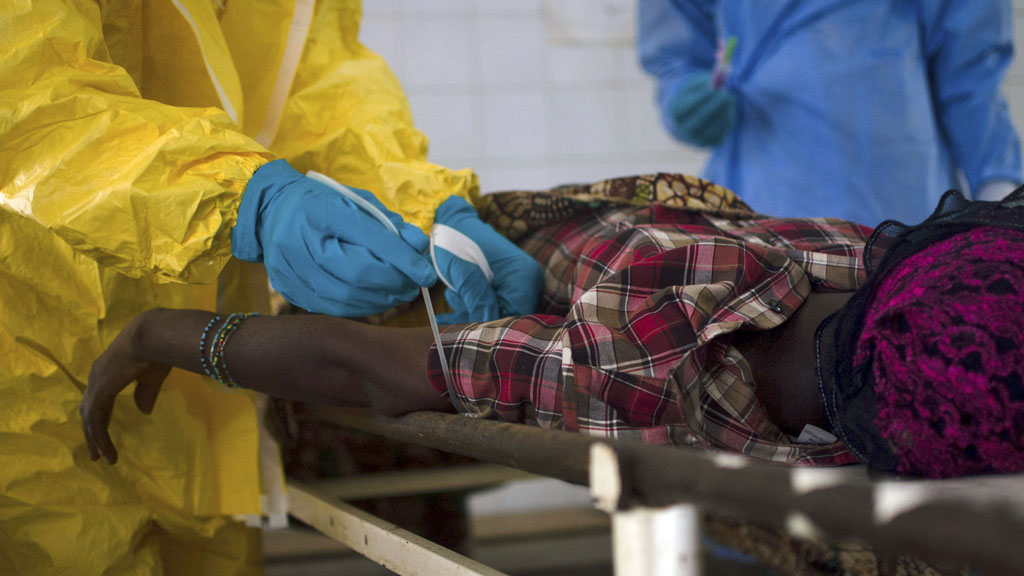Hunger is the new danger inside the Ebola zone
Cut off from the rest of the world thanks to the outbreak of the killer virus, people in Kailahun, Sierra Leone, are on the brink of starvation.

Since the outbreak of Ebola, my region has come to a standstill, effectively cut off from the rest of the world, writes local citizen journalist Moses Kortu.
Markets have been shut down for over two months, borders and banks are closed, and military blockades have been put in place to restrict movement.
The Ebola epidemic has plagued this remote region since May, and with food prices rising and people getting hungrier, the government has so far failed to take adequate action to avert the threat of famine.
The government has deployed 1,500 soldiers at checkpoints around the country in an operation designed to enforce the quarantine, but the knock-on effect has been to make life almost impossible for traders.
Sahr Musu, a local trader, told me: “I can’t take my business outside because the police are all over.” With no markets, people are asking themselves how they will survive and are waiting for the government to lift the ban.
‘The government doesn’t provide food for us’
Many are questioning the government’s decision to spend money deploying military rather than taking steps to deal with the severe food shortages.
“The government doesn’t provide food for us and we are suffering from hunger,” said Marima Lamin, a local market trader.
We used to buy our goods in Guinea and give loans in exchange for commodities but now the borders are closed. Marima Lamin
“We the traders, the women of this nation, are asking them to look into this problem and find solutions.”
She added: “We used to buy our goods in Guinea and give loans in exchange for commodities but now the borders are closed. We need to cross the border to do our business. Most of us are widows, we don’t have any body to help us, we feed our family though our businesses.”
Food prices rise
With demand for food on the rise and supply diminishing rapidly, the prices of basic items such as rice and cooking oil are rising steadily. A bag of rice now costs nearly £2 more than at the start of the outbreak, and a can of cooking oil now costs nearly £3 more.
The poorest members of the community are no longer able to buy rice, but are surviving off bananas and cassava.
With the market now closed for over two months, local farmers’ livelihoods are under threat, leaving them with no way to feed their families. Victor Fayia, a local farmer, said: “No market, no movement. So our children are suffering from hunger.
Our vegetables are wasting here. Because of sickness we suffer from hunger. Victor Fayia
“We sometimes sell our vegetables to buy food…some of us do not have any other means of getting food except farming. Our vegetables are wasting here. Because of sickness we suffer from hunger.”
I don’t know of anybody who has died of hunger yet, but I have spoken to many people who are suffering. People are hungry and are pleading for the restrictions on movement to be lifted – the next few weeks will be critical.
Moses Kortu trained as a citizen journalist with On Our Radar and filed his copy via SMS messages.